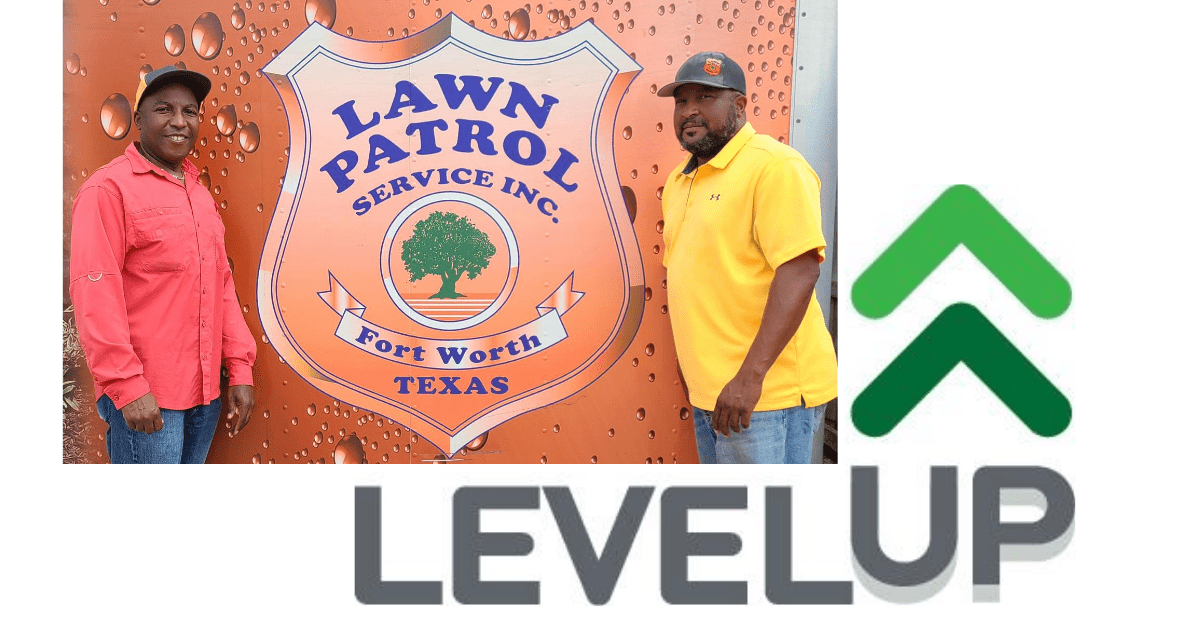
Our Level Up series shares the strategies that help landscape and lawn care companies get to the next level.
Lawn Patrol Service Inc., based in Fort Worth, Texas, takes pride in their customer service and is working to create a stable workforce before growing their company to the next level.
Michael Conley, LIC, CFO and co-owner, says bigger isn’t always better. They are looking to reach the $4 to $6 million range for now, but he says that could always change. Lawn Patrol reevaluates their goals every three to five years. The company’s current revenue is between $2.5 and $3.5 million.
In business since 1998, Conley runs Lawn Patrol with his brother Tony Conley, CEO and co-owner. When Lawn Patrol first started out, they did landscape design/install, residential lawn care and subcontractor work for national contractors.
“Now we’re focusing I would say about 90 percent of our work on commercial lawn maintenance,” Conley says. “We realized if you’re trying to do five or ten things, you can end up not doing any of them well. We’ve narrowed the scope to focus in on one or two main areas.”
Explosion of New Opportunities
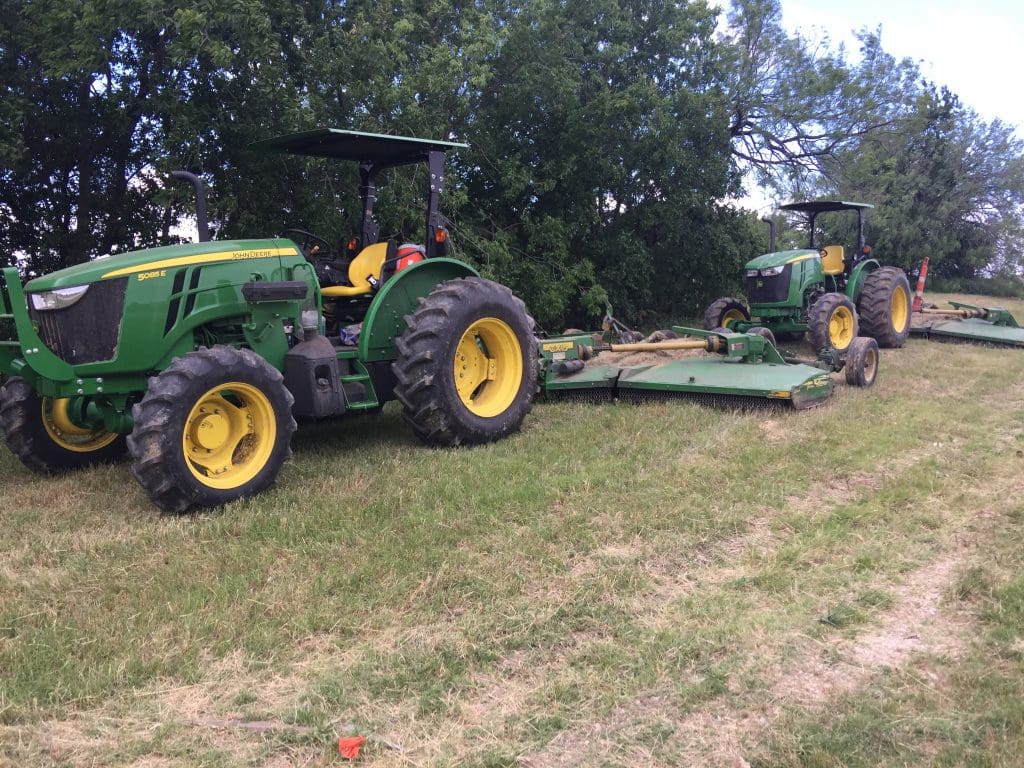
Photo: Lawn Patrol
Conley says when they reached $1 and $2 million range that their growth suddenly took off. This was five to six years after starting the business. He credits this surge to learning from their experience and having established their company name.
“We probably had a few years of 25 plus percent growth,” Conley says. “That puts a good amount of pressure on the financial resources and staffing as well as trying to run the business.”
Conley says they could have potentially been much bigger than where they are now in terms of revenue. However, due to the financial resources and workforce issues and the desire not to grow too fast caused them to pause.
Around three to four years ago, Tony had been running the operational side as well as the day-to-day aspect of the business. Then Michael decided to leave his corporate job and come work full time at Lawn Patrol. They decided before they tried to grow their business to the next level, they wanted to make sure certain aspects were in place. After examining the business, they decided they wanted to improve their profit margins, their debt to equity ratio and their training program.
Pausing for Efficiency
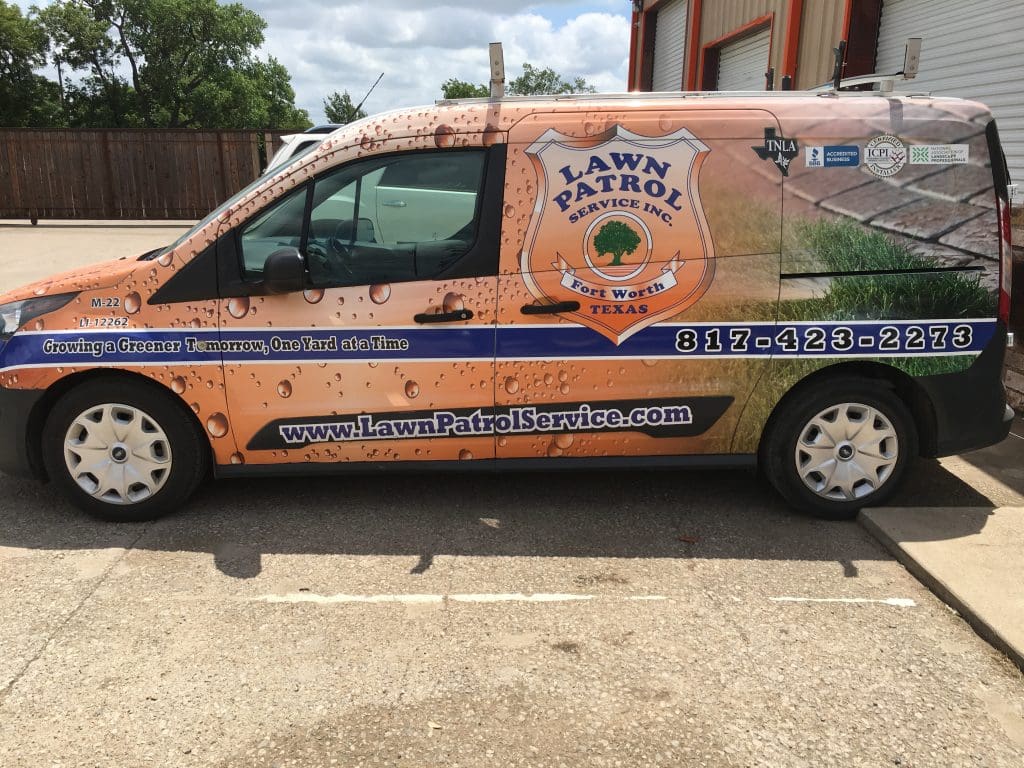
The end goal was to open a second location. Yet they knew they needed to have the necessary systems and processes in place first. Combining Michael’s project management skills with Tony’s operational experience, they realized they could be more efficient and productive, without having to become bigger.
“NALP has allowed us to see the bigger picture through companies who have similar size and goals that we have,” Conley says. “I went to a conference and I was blown away by the technology that was available in the landscape industry. In order to have a competitive advantage, we have to continue to be aware and implement and be engaged in finding the next thing is going to help improve our gross margins.”
Conley says they were spinning their wheels a bit in terms of margins, so they implemented Aspire software to help with job costing. Processes and systems were implemented to reduce the amount of resources they were spending on insurance costs and equipment maintenance.
“We’ve gone to an 80/20 lease to purchase strategy,” Conley says. “We found we were keeping our equipment too long so now that’s been a huge one where there’s probably $30,000-$40,000 a year that we were able to shave off of the equipment maintenance.”
Other efforts, like reducing overtime, cutting down shop yard time, extending the lunch period and continuing to add technology have all helped Lawn Patrol improve their profit margin.
“We’re constantly trying to improve,” Conley says. “One we are still working through because of the labor shortage is the reduction of overtime. We’re managing it but we’re still having to spend a lot more on overtime than we would like just because of the shortage.”
As for improving their debt to equity ratio, Conley says they are consciously reviewing their long-term and short-term debt and trying to reduce it by increasing their monthly payments.
Creating a Stable Workforce
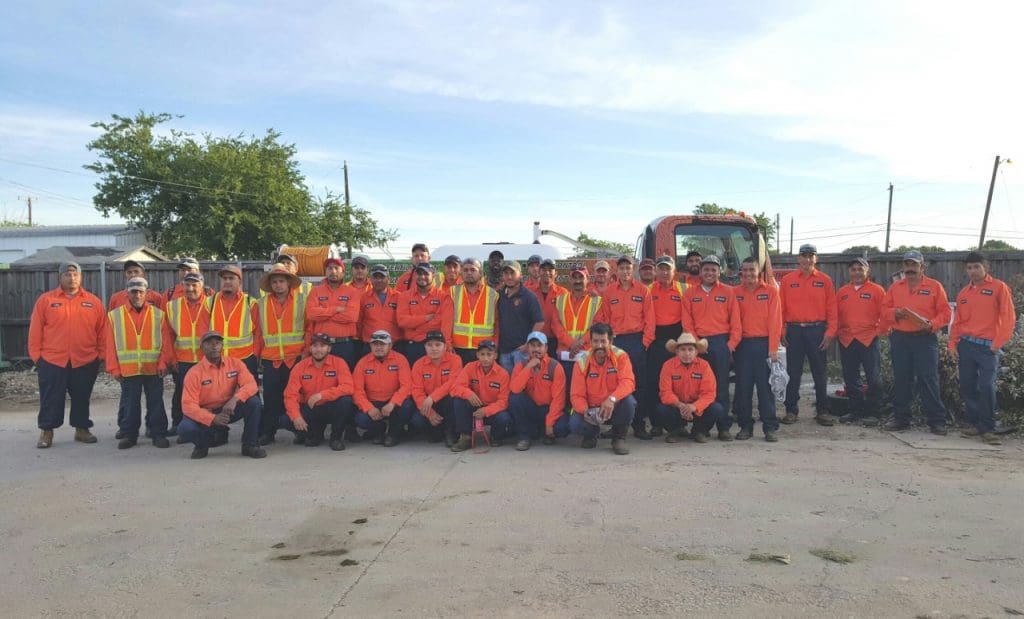
Photo: Lawn Patrol
The company’s staff has grown from six to 10 employees to 40 to 50 team members. Conley says they could always use additional team members between March and December, but the labor shortage has caused them to make do with the staff they have.
“We’re having to manage our overtime expense with the individuals that we have,” he says.
Conley says finding skilled management-level team members who genuinely care about the final product has been a challenge as well as entry-level labor. He says they are working to implement a training program to help get new hires up to speed by teaming them up with a mentor.
They also provide documentation and videos during the onboarding process to help introduce them to the company culture. Conley says the NALP educational resources are also helpful with this. They pursue Landscape Industry Certification for added credibility with customers.
“With the labor shortage now you’re having to take people from different other industries so we’re trying to put a program in place where when they come in, they have something that they can go by, and know what is expected of them and how to get to that point where they become efficient,” Conley says.
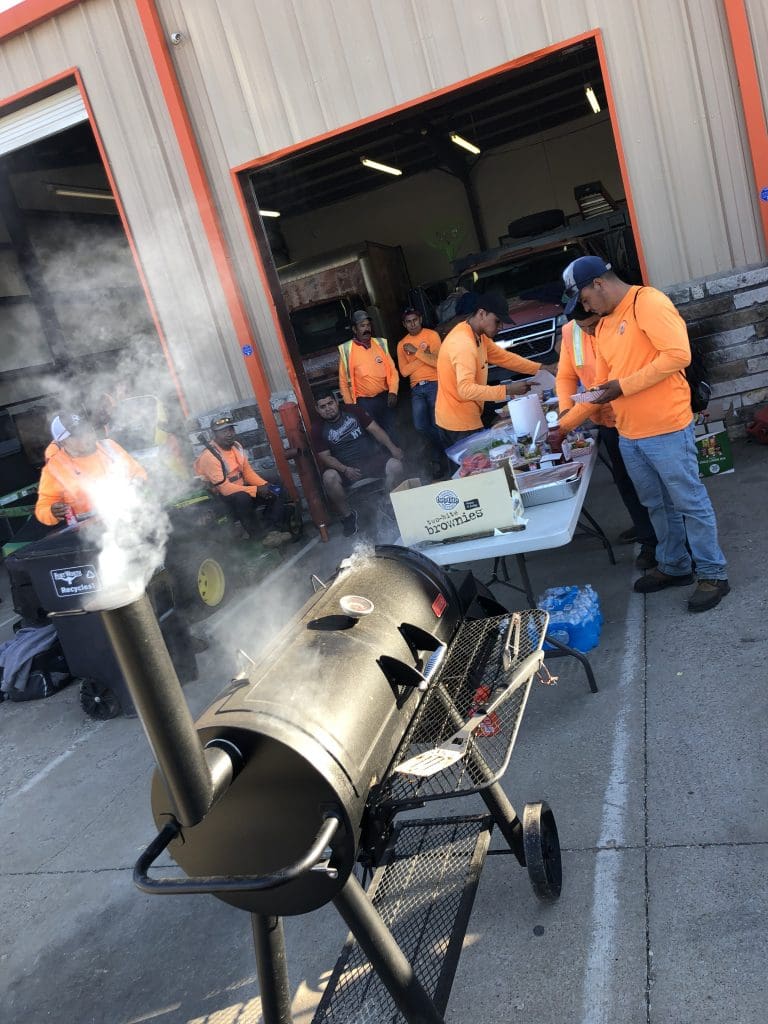
Photo: Lawn Patrol
Having team members who stay on longer than a season allows the company to build the energy and knowledge needed to drive growth. Conley says their company culture is about staying true to their upbringing, respecting others and having a high degree of character and integrity as they operate every day.
He says they are honest with their employees and make a point to make them feel part of the family by taking the time to ask about events going on in their lives, hosting company events and rewarding individuals who go above and beyond.
“We are willing to be inclusive with the team members at all levels of our company to make them feel that we’re no different from them,” Conley says. “We’re coming into work every day to provide for our family, just like they are.”
Click here to read more Level Up stories.

